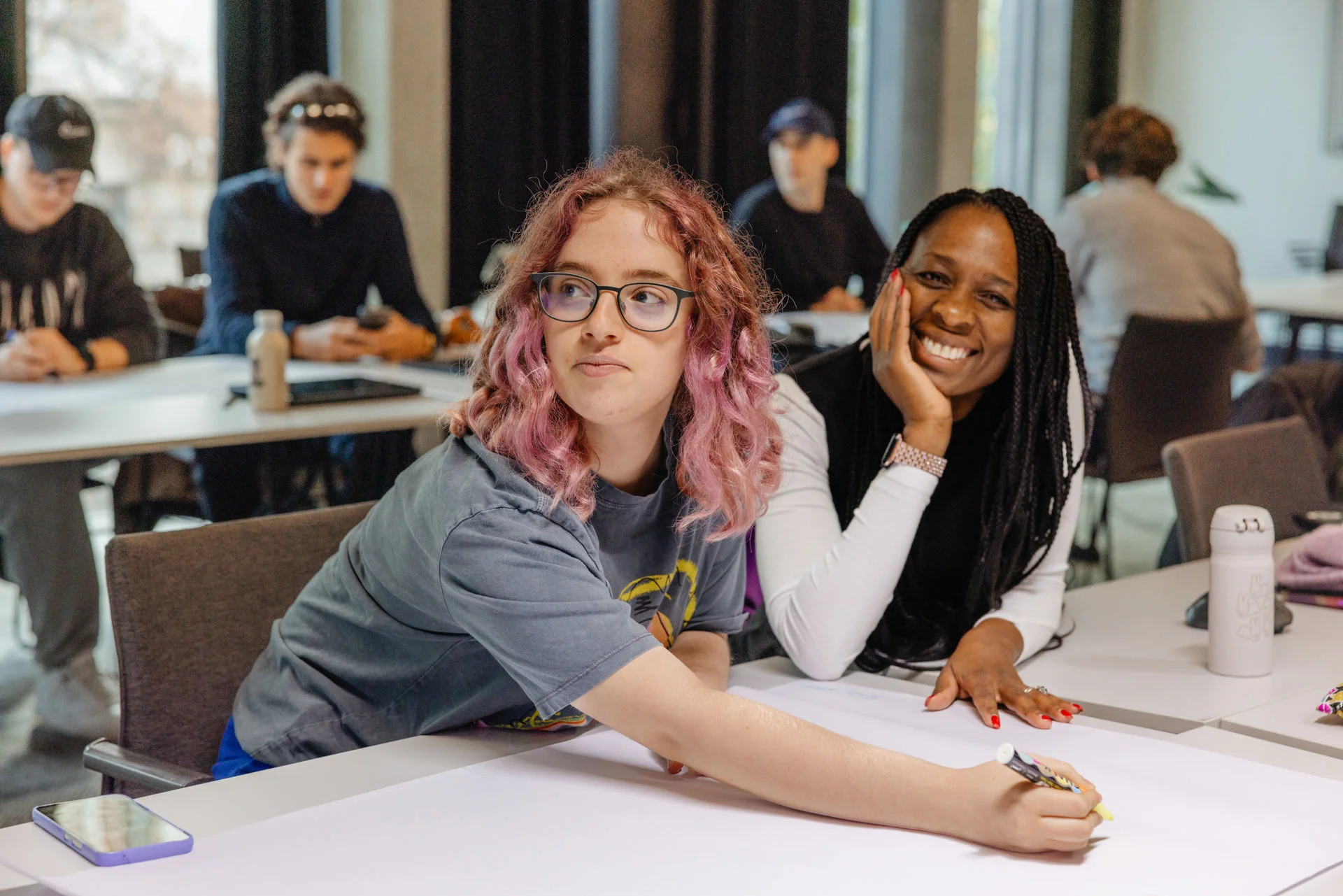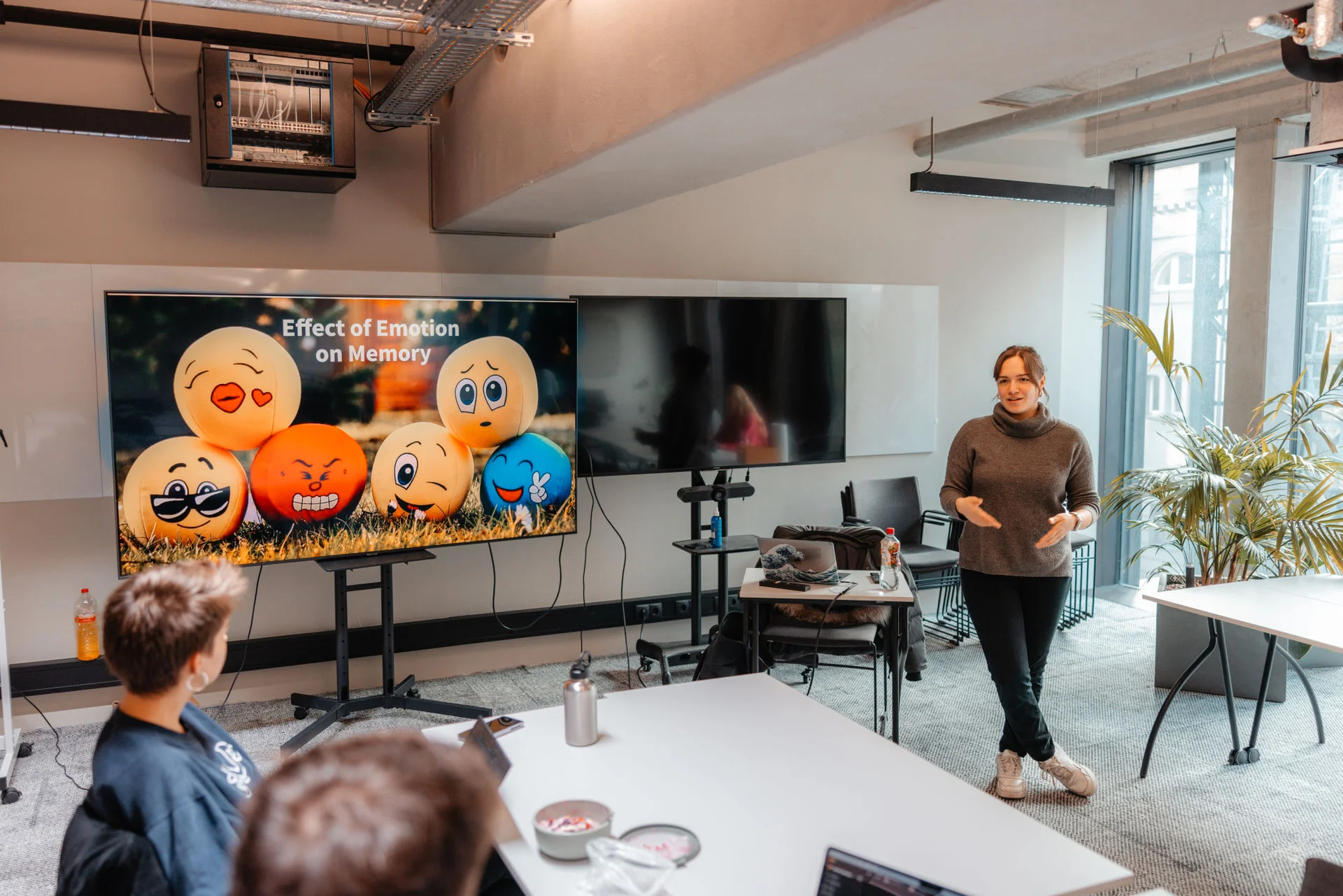A new approach to learning
At CODE, we reimagine how higher education works in the modern tech world. Our unique educational approach abandons outdated conventions and proves that a new way is possible.
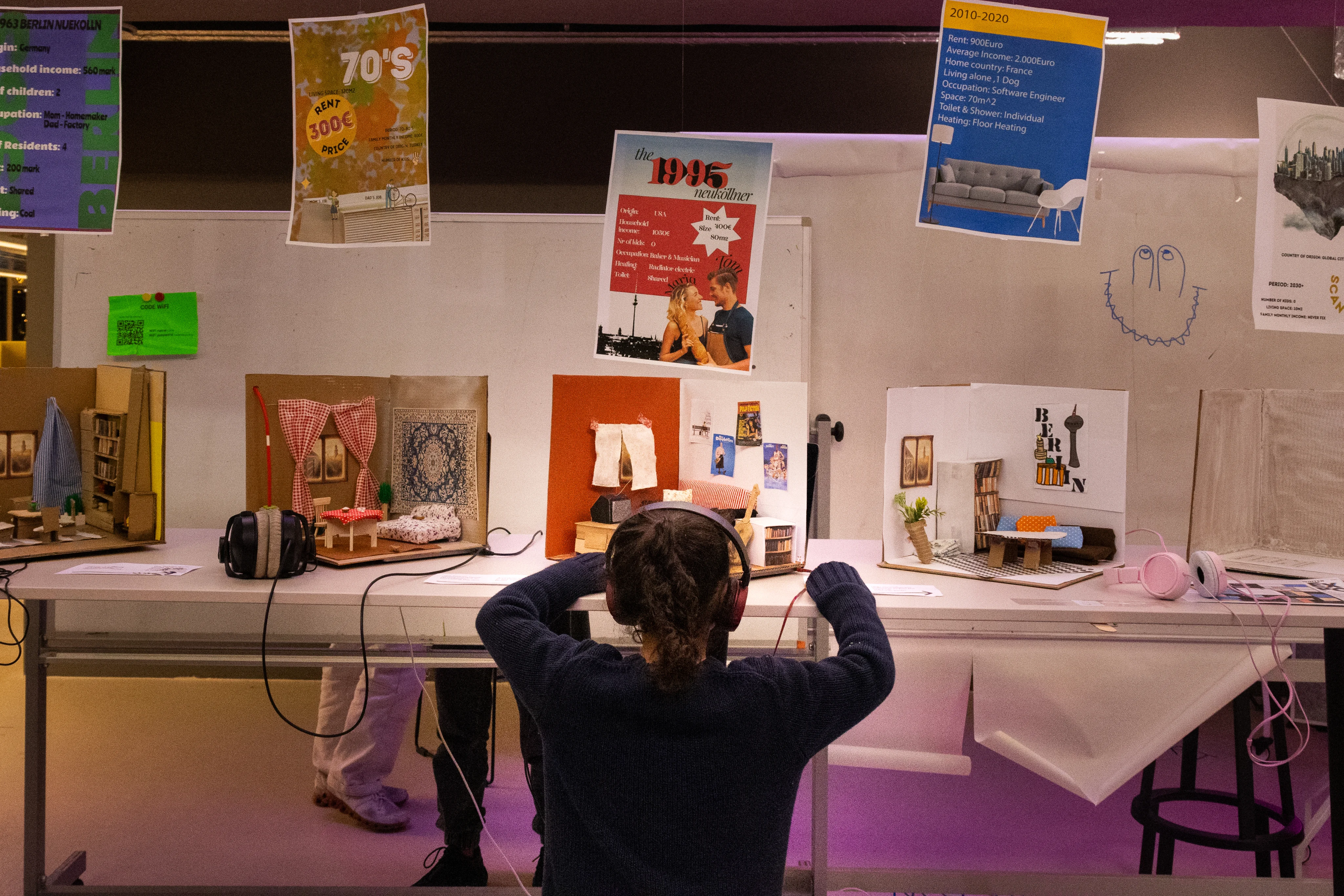

How it works
We redefine learning by moving beyond traditional pen-and-paper exams and lecture halls. Our innovative approach focuses on project-based, hands-on experiences that encourage exploration and creativity. Students are empowered to take charge of their education, working on real-world challenges and collaborating across disciplines. This dynamic environment nurtures curiosity and fosters a deeper understanding, preparing you for the ever-evolving demands of the tech industry.
Curiosity-driven education
In a world where the vast resources of ChatGPT, Google and Stack Overflow are readily available, traditional, lengthy theoretical lectures have become outdated. At CODE, we understand that today’s knowledge is just a click away. Instead of repeating what’s already accessible, we guide our students to effectively utilize these resources and create real value in their projects.
Project-based learning
At the beginning of each core semester, students, faculty, and partners pitch diverse project ideas, ranging from deep tech and software development to creative design and user experience research. Students follow their curiosity to choose a project that’s right for them, in which they apply their knowledge and learn in a sustainable way.
Interdisciplinary teams
Following the initial project pitch phase, students dive into forming interdisciplinary teams across all three study programs. Software engineers, designers and entrepreneurs work together as they would in the "real world", as these disciplines reflect the comprehensive skill set required for developing digital products.
Professors as mentors
Holding lectures is a practice from the Middle Ages (literally!). So, don’t expect traditional lecture halls on our campus. At CODE, our professors serve as mentors. They guide group sessions, fostering discussions and practical application of the material, rather than imparting theory. Their role is to inspire creativity, support problem-solving, and step in with learning units when needed.
Tell me and I forget. Teach me and I remember. Involve me and I learn.
Semester overview
A Bachelor degree at CODE typically takes three years (6 semesters) and is broken down into three types of semesters: Orientation, Core and Synthesis. The study programs and curricula are designed to accelerate your learning and maximize your curiosity.
Orientation semester
The first semester for every CODE student, where you get practical experience in all three disciplines, with professor guidance and project-based assignments.
Select your program
After orientation, you commit to a study program, which will decide which modules will be mandatory for you. If you change your mind, it is still possible to switch study programs during your studies.
Core semesters
This is where you will spend the majority of your time, building projects, joining Learning Units and doing assessments. You decide which modules you want to take when and how to align them with your project work.
Synthesis semester
The final semester of your studies at CODE, where you combine all you’ve learned into creating a final Capstone Project and writing your Bachelor Thesis.
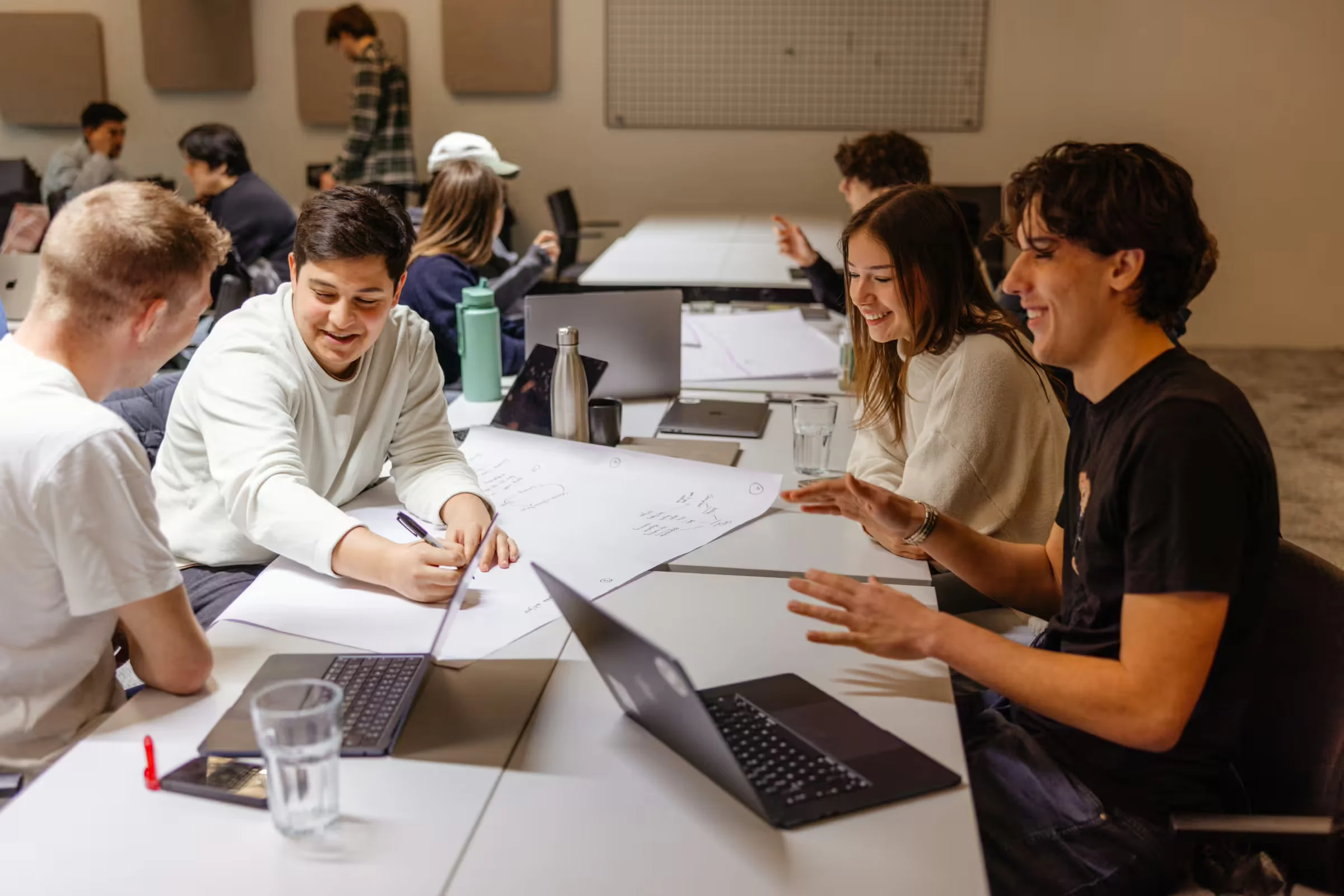
An ounce of practice is worth more than tons of preaching.
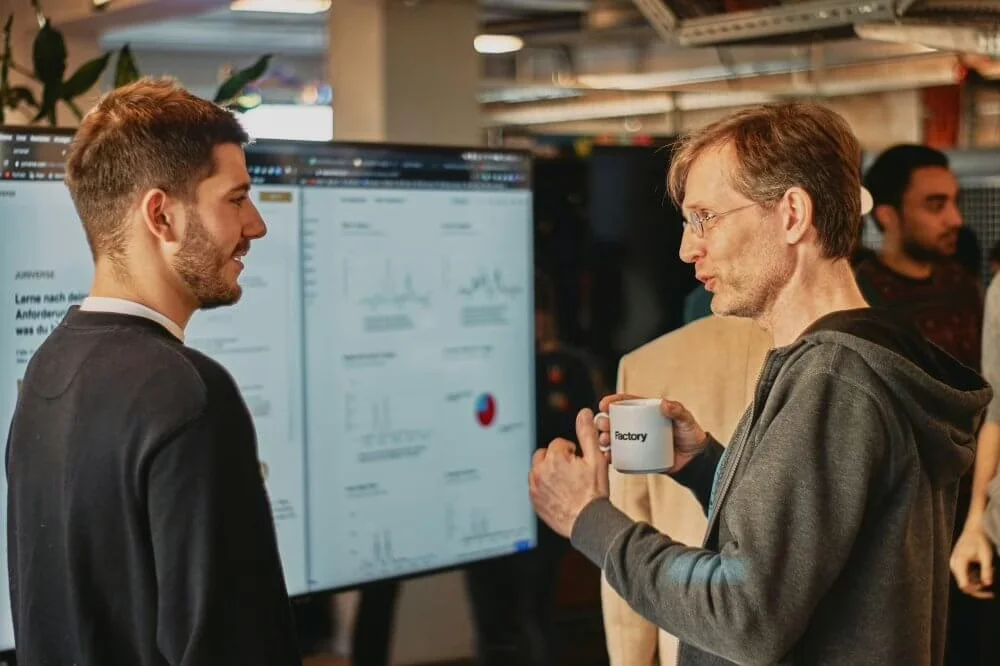
Science, Technology and Society: Asking the big questions
We believe that all students should think about the social impact of their work, taking into account the political forces of today, in order to become responsible digital pioneers.
That’s where STS comes in: our Science, Technology, and Society program offers students a comprehensive overview of the world, with roots in philosophy, psychology, literature, economics, law, and science.
Ask the big questions. Take time to find answers. Do something wonderful with all the diverse cultural expressions - new and old - that enrich our world.
It all started with curiosity
Let’s take a trip down memory lane to 2017, when our co-founder Manuel Dolderer gave a TEDx talk on the idea of curiosity-driven education and the birth of CODE.
Frequently asked questions
We get it. Our learning concept is a bit different. Here are some of the questions we get asked often.
Want to learn more?
We recommend exploring these pages to learn about the experience of studying at CODE.

